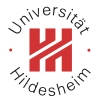Vorträge von Ulrike Hartung und Benjamin Hoesch auf Konferenz in Sydney
26.04.2019 – 28.04.2019
Bei der Konferenz der Macquarie University Sydney, die vom 26.-28. April unter dem Titel "Theatre and Internationalisation + Barry Kosky: Past, Present, Future" in Sydney/Australien stattfindet, sind mit Ulrike Hartung und Benjamin Hoesch auch Mitglieder der Forschungsgruppe vertreten.
Im Kontext der Tagung, die sich mit dem Zusammenspiel von Theater und Internationalisierung, bzw. den Auswirkungen der Globalisierung auf die darstellenden Künste und Kunstschaffenden auseinandersetzt, platziert die Forschungsgruppe zwei Vorträge:
- Dr. Ulrike Hartung: Sex, Crime, and Music: Barrie Kosky’s Poppea as Postdramatic Music Theatre
- Benjamin Hoesch, M.A.: Young artists – international markets: European festivals of contemporary theatre
Sex, Crime, and Music: Barrie Kosky’s Poppea as Postdramatic Music Theatre
Dr. Ulrike Hartung
The theatrical landscape in the German-speaking countries is unique. Funded directly by the state or by individual municipalities, opera houses receive most of their subsidization. On the basis of this financial situation, one might assume that opera producers dispose of a certain artistic freedom, however, these opera houses are dominated by a certain homogeneous aesthetic called Regietheater (Director’s theatre). This aesthetic, developed in the early 1970s, focuses on hermeneutic interpretation of opera sujets that are constituent components of the repertoire. Giving it a new contemporary look Regietheater intends to make these sujets relevant for its contemporary audience.
As I stated in my dissertation Postdramatisches Musiktheater, alternative concepts of staging opera emerged approximately 20 years ago. These concepts were developed far from the large stages of opera houses, and follow theatrical strategies derived from what German theatre scholar Hans-Thies Lehmann called “postdramatic theatre”. Similar to the way Regietheater originated in drama, postdramatic theatre is an umbrella term for aesthetic tendencies which Lehmann observed in spoken theatre. Since the early 2000s these tendencies can also be found in opera productions.
This paper will attempt to point out the aesthetic differences between these two concepts of opera stagings. It considers Barrie Kosky’s Poppea (Schauspielhaus Vienna, 2003) that compiles baroque opera (L’incoronazione di Poppea by Claudio Monteverdi) with songs by Cole Porter as a vivid example for postdramatic music theatre.
Young artists – international markets: European festivals of contemporary theatre
Benjamin Hoesch, M.A.
In theatre artists' biographies, the concept of the market has become widely accepted: not romanticized genius, but the productive balancing of demands, resources, personal branding and risk define the artist and his/her market value in relation to others as competitors. In this light, the history of art can be seen as a constantly renewing exchange of symbolic capital (Bourdieu) and a trend in market conditions towards dynamism and flexibility becomes apparent: Until recently, most theatre directors in Europe emerged from long term assistant work within a stably structured theatre system – defined, not least, by national or language borders. Now, the expectation towards emerging artists has shifted: Being educated in specialized academic programs, they can gain leading positions and public interest at a much younger age – made possible by the spread of festivals for young artists over Europe since the 1990s. But for that, they have to proof creative skill publicly, without any certainty to ever earn a living from art – and they increasingly compete with fellow artists on an international scale, following the example of all-round talents and global players like Barrie Kosky.
As I want to show, festivals for young artists are both an early reaction to and influential promotors of the internationalisation of theatre: In contrast to many nationally oriented study programs, they prepare artists for an increasingly international market; at the same time, they establish their own markets with competitive relations among artists who would never have met, had they stayed inside national theatre systems. As a result, young artists take a leading role in the trend towards internationalisation – while being concerned the most with its consequences of flexibility demands and toughening competition.
Based on my field research at “Fast Forward – European Festival for young directors” (Dresden) and at “World Stage Design 2017” (Taipei), interviews on the festival “Premières” (Strasbourg) as well as archive research on “Plateaux” (Frankfurt), I want to discuss the interrelations between increasing public interest in young artists and the internationalisation of markets.








